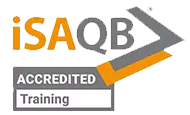03-05 Mar 2026
GMT +1
-
Tue - Thu
- 09:00 - 17:00
Seats
4 left
-
15% Monthly Pick
-
![schweiz flag]() Switzerland
Switzerland
- Trainer
- Matthias Bohlen
- Sprache
- German
- Standort
-
Zürich
- Plätze
- 4 Frei
3130,00
2660,00
Guaranteed




